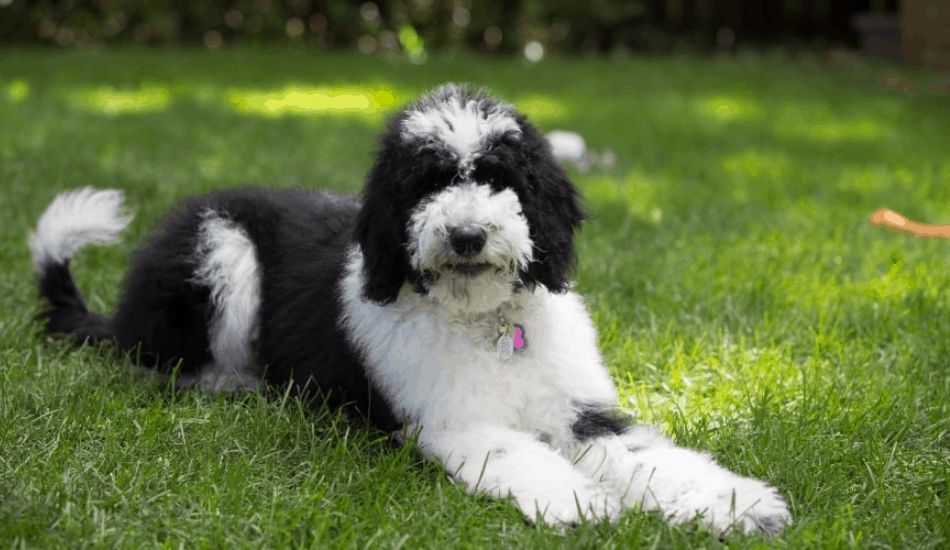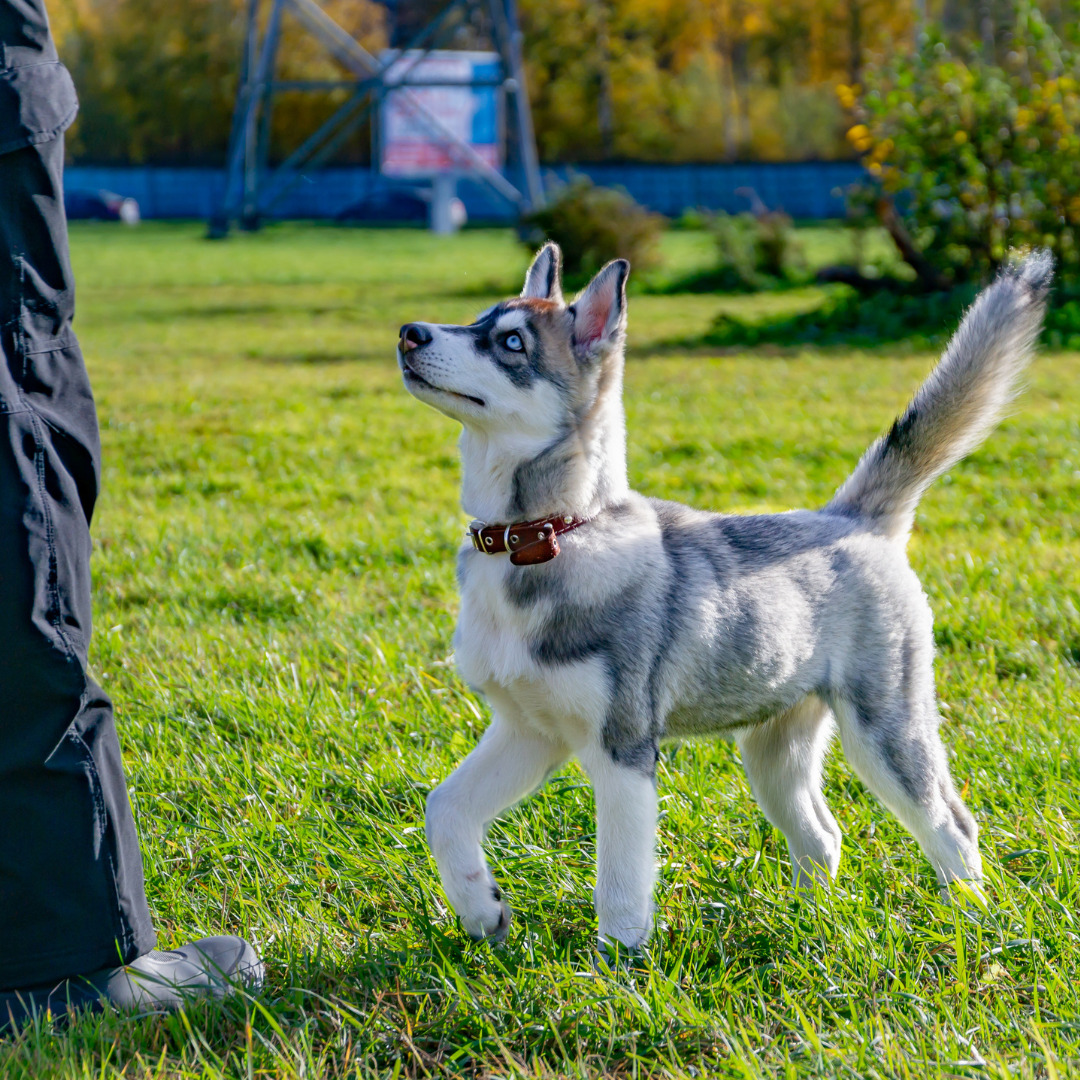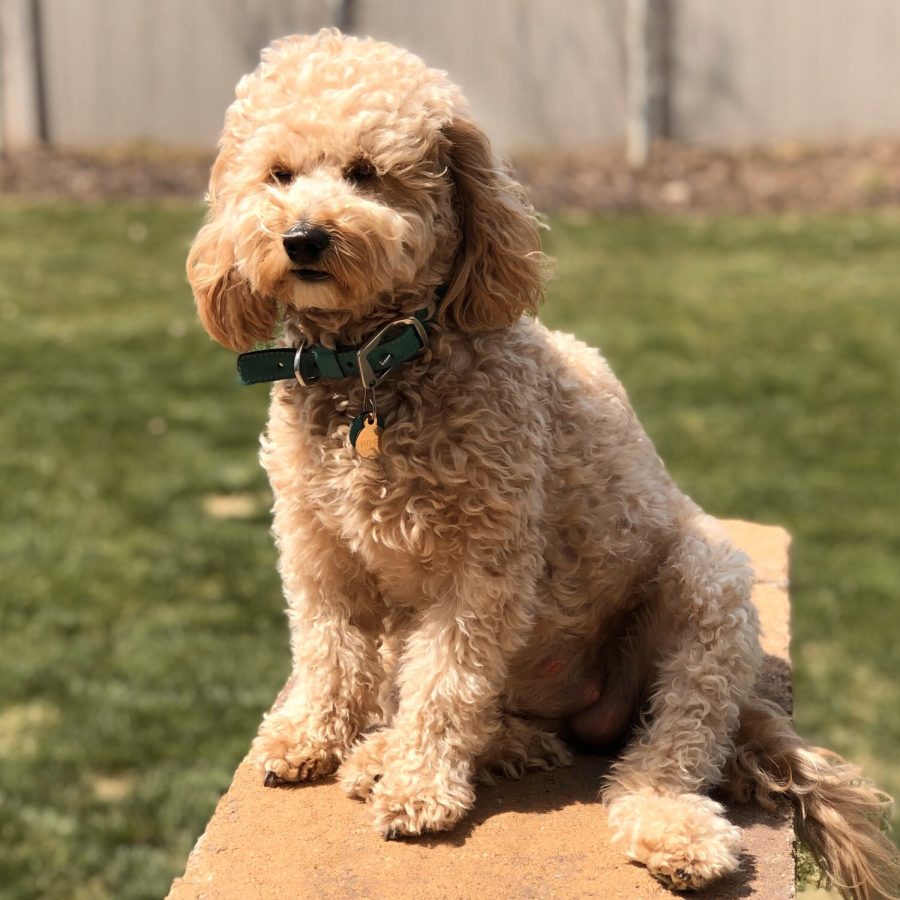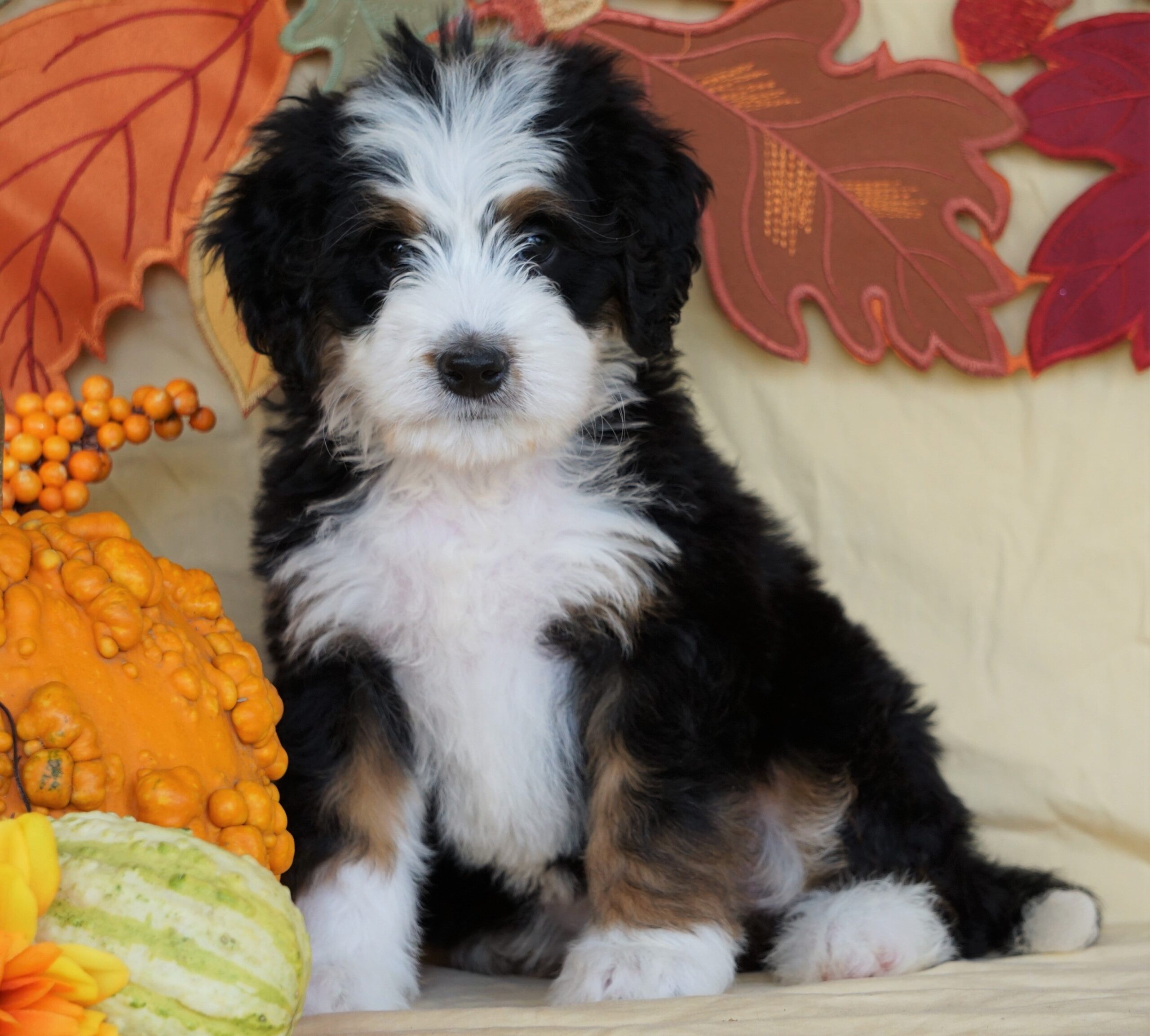Sheepadoodles are a unique hybrid breed, a cross between Old English Sheepdogs and Poodles. They are intelligent and affectionate companions, popular among families due to their medium to large size. Regular grooming is essential for this breed. If you want to know more about caring for Sheepadoodles, understanding their health issues, grooming needs like coat care, eye care, and ear care are crucial aspects to consider. These dogs require attention to various areas to ensure their well-being and happiness.
In This Article
In This Article, readers will find comprehensive information on the Sheepadoodle dog breed, including details on their origin, characteristics, temperament, grooming needs, health considerations, and training requirements.
Sheepadoodles are a crossbreed of Old English Sheepdogs and Poodles, first developed in the 1960s by the US Army. They have gained popularity as family pets since the 1990s, known for their loving nature and loyalty.
Sheepadoodles are medium to large in size, with variations in appearance due to their mixed breed lineage. They can weigh between 40 and 90 lbs, with standard sizes ranging from 20-26 inches at the shoulder. These intelligent and affectionate companions require regular grooming to prevent matting, with professional assistance sometimes necessary. Their non-shedding coats make them popular for owners with allergies, but grooming remains essential for their well-being.
Additionally, potential health issues like hip dysplasia and eye conditions should be monitored, emphasizing the importance of regular vet check-ups. Training requirements include mental stimulation, exercise, and positive reinforcement to harness their adaptability and intelligence effectively.
Caring for a Sheepadoodle
Continuing our exploration of Sheepadoodles, a key aspect to consider is their care requirements to ensure their well-being and happiness. Sheepadoodles are loyal and loving companions, making them great additions to families. To keep them healthy and content, regular exercise is crucial. They require moderate to high levels of activity, ideally 1-2 hours of exercise daily to keep them physically and mentally stimulated.
In terms of grooming, Sheepadoodles have significant needs due to their parent breeds. Regular brushing and professional grooming are essential to prevent mats and maintain their coat health. Starting grooming routines early can also help in bonding with your Sheepadoodle. Additionally, eye and ear care are important aspects of their grooming routine to prevent any potential health issues.
When it comes to nutrition, Sheepadoodles have large appetites and require a specific balance of nutrients. Feeding them at least twice daily following feeding guidelines and monitoring their body condition scores are recommended to ensure their ideal shape and overall health. Consulting with a vet for suitable food choices based on their size, activity level, and life stage is also beneficial.
Sheepadoodle Health Issues
Exploring the health of Sheepadoodles reveals a breed prone to certain genetic and inherited health issues. Due to their mixed heritage, Sheepadoodles may inherit conditions common in Poodles and Old English Sheepdogs. Among the potential health issues, hip dysplasia and eye conditions like cataracts are prevalent. Hip dysplasia, a genetic condition affecting the hip joint, can lead to discomfort, limping, or arthritis. Regular veterinary check-ups and monitoring are crucial to detect and manage these health concerns early on.
In addition to hip dysplasia and eye problems, Sheepadoodles may also be susceptible to other genetic diseases such as epilepsy, hypothyroidism, and certain heart conditions. It is essential for Sheepadoodle owners to be aware of these potential health issues and work closely with their veterinarians to ensure the well-being of their furry companions. By staying proactive and vigilant about their health, Sheepadoodles can lead long, healthy lives filled with love and joy.
Hip Dysplasia
Hip Dysplasia in Sheepadoodles is a genetic condition affecting the hip joint that requires proactive monitoring and management for optimal well-being. This condition occurs when the hip joint does not develop properly, leading to issues with mobility, pain, and arthritis over time. Sheepadoodles, being a crossbreed, can inherit this condition from their parent breeds, the Poodle and the Old English Sheepdog.
Symptoms of hip dysplasia in Sheepadoodles include limping, difficulty rising, decreased activity levels, and reluctance to exercise. It is crucial for Sheepadoodle owners to be aware of this condition and work closely with their veterinarian to develop a care plan. To help manage hip dysplasia in Sheepadoodles, maintaining a healthy weight through proper diet and regular, moderate exercise is essential.
Additionally, providing joint supplements, such as glucosamine and omega-3 fatty acids, can help support hip joint health and alleviate discomfort associated with hip dysplasia. Regular veterinary check-ups and early intervention can greatly improve the quality of life for Sheepadoodles affected by hip dysplasia.
Eye Issues
Eye issues in Sheepadoodles can encompass a range of conditions that may impact their vision and overall ocular health. One common eye condition in Sheepadoodles is progressive retinal atrophy (PRA), a genetic disease that can lead to vision impairment and eventually blindness. This condition affects the photoreceptor cells in the eyes and typically manifests as night blindness initially, progressing to complete blindness over time. Regular eye check-ups with a veterinarian can help in early detection and management of PRA.
Another potential eye issue that Sheepadoodles may face is cataracts, which can affect the clarity of the lens in the eye, leading to blurred vision or even complete vision loss if left untreated. Cataracts can be hereditary or develop due to aging, diabetes, or other underlying health conditions. Surgical intervention is often required to remove cataracts and restore vision in affected Sheepadoodles. Monitoring your Sheepadoodle’s eyes for any signs of cloudiness or changes in behavior related to vision can aid in prompt diagnosis and treatment of cataracts.
Regular grooming practices should include gentle cleaning around the eyes to prevent any irritations or infections that could potentially impact their eye health.
Bloat
A critical condition that can affect Sheepadoodles is bloat, a potentially life-threatening emergency that requires immediate veterinary attention. Bloat, also known as gastric dilatation-volvulus (GDV), occurs when a dog’s stomach fills with gas, fluid, or food, causing it to expand and twist on itself. This condition is particularly concerning for deep-chested breeds like Sheepadoodles, as the twisting can cut off blood flow to the heart and other organs.
Symptoms of bloat include restlessness, pacing, unproductive vomiting, a swollen abdomen, and signs of distress. If left untreated, bloat can lead to shock, organ damage, and death within hours. To reduce the risk of bloat in Sheepadoodles, it is recommended to feed them smaller, more frequent meals, avoid vigorous exercise before and after eating, and monitor their behavior for any signs of discomfort. If you suspect your Sheepadoodle is experiencing bloat, seek immediate veterinary care to increase the chances of a successful outcome.
What To Feed a Sheepadoodle
When considering the diet for a Sheepadoodle, it is essential to focus on providing a balanced and nutritionally complete meal plan tailored to their size, activity level, and specific dietary needs. Sheepadoodles are medium to large dogs with varying energy levels, so their food should match these requirements. Here is a simple guide to help you understand what to feed your Sheepadoodle:
| Food Type | Key Benefits |
|---|---|
| High-Quality Dry Food | Provides essential nutrients for overall health. |
| Lean Protein Sources | Supports muscle development and maintenance. |
| Healthy Fats | Good for skin, coat, and overall well-being. |
How To Feed a Sheepadoodle
To ensure optimal health and well-being for your Sheepadoodle, it is essential to establish a structured feeding routine that aligns with their size, activity level, and nutritional requirements. Start by selecting a high-quality dog food specifically formulated for medium to large breeds with moderate energy levels. Avoid foods with excessive fillers or additives that may not provide the necessary nutrients for your Sheepadoodle’s well-being.
When feeding your Sheepadoodle, consider their age, weight, and activity level to determine the appropriate portion sizes. It is recommended to feed adult Sheepadoodles twice a day to maintain consistent energy levels and prevent overeating. Puppies may require more frequent meals to support their growth and development.
Always provide access to fresh water throughout the day to keep your Sheepadoodle hydrated. Additionally, monitor their weight and body condition regularly to adjust their feeding portions accordingly. Consulting with a veterinarian can help tailor a feeding plan that meets your Sheepadoodle’s specific needs.
How Much Should You Feed a Sheepadoodle?
Establishing a balanced feeding regimen tailored to the size, energy level, and nutritional requirements of your Sheepadoodle is fundamental for maintaining their optimal health and well-being. When determining how much to feed your Sheepadoodle, factors such as age, size, activity level, and metabolism play a crucial role. Here is a general guideline to help you determine the appropriate amount of food to provide for your Sheepadoodle:
| Age | Amount of Food | Feeding Frequency |
|---|---|---|
| Puppy | 1-1.5 cups | 3-4 times a day |
| Adult | 2-3 cups | 2 times a day |
| Senior | 1.5-2 cups | 2 times a day |
It is essential to monitor your Sheepadoodle’s body condition and adjust their food intake accordingly. Remember to consult with your veterinarian to establish a personalized feeding plan that suits your Sheepadoodle’s specific needs and lifestyle.
Nutritional Tips for Sheepadoodles
In optimizing the health and well-being of Sheepadoodles, ensuring a balanced and nutrient-rich diet is essential for their overall vitality and longevity. Sheepadoodles are energetic and intelligent dogs that require specific nutritional considerations. To maintain their health, Sheepadoodles should be fed high-quality dog food that is appropriate for their size, age, and activity level.
Large appetites are common in Sheepadoodles, so it’s crucial to monitor their food intake and ensure they receive the necessary nutrients without overfeeding. Regular body condition scoring can help in adjusting their diet accordingly to prevent obesity or malnutrition. Feeding them at least twice daily following feeding guidelines recommended by veterinarians or breeders can help keep them in optimal shape.
Additionally, providing fresh water at all times is essential for their well-being. Consulting with a veterinarian to determine the best diet plan for your Sheepadoodle can ensure they receive the proper nutrition to support their growth, energy levels, and overall health.
Behavior and Training Tips for Sheepadoodles
Sheepadoodles exhibit a high level of intelligence and adaptability, making consistent training and positive reinforcement essential for fostering their well-rounded behavior. To ensure your Sheepadoodle develops into a well-behaved companion, consider the following behavior and training tips:
- Regular Exercise: Sheepadoodles require ample physical activity to prevent boredom and destructive behaviors.
- Socialization: Early and continued socialization with people and other animals is crucial to prevent aloofness or aggression towards strangers.
- Mental Stimulation: Engage your Sheepadoodle in mentally stimulating activities to keep their intelligent minds occupied.
- Positive Reinforcement: Use positive reinforcement techniques such as treats, praise, and rewards to motivate and encourage good behavior.
- Training Classes: Enroll your Sheepadoodle in obedience classes to enhance their training, socialization, and overall behavior in various environments.
Sheepadoodle Personality and Temperament
Known for their affectionate and adaptable nature, Sheepadoodles exhibit a unique blend of intelligence and sociability in their personality and temperament. These hybrid dogs inherit protective, intelligent, and loving traits from Old English Sheepdogs, combined with the lively, sociable, and affectionate characteristics of Poodles.
Generally large and friendly, Sheepadoodles thrive on companionship and space to move around. Early socialization and training are crucial to ensure they reach their full potential as loving family pets.
Due to their mixed lineage, Sheepadoodles can display a range of traits from both parent breeds. Owners can expect a dog that is not only intelligent and trainable but also requires mental stimulation and exercise to stay happy and healthy. Their adaptable nature makes them suitable for various environments, but they do best with active families who can provide the time and attention these social dogs crave.
Understanding their unique mix of traits and grooming needs is essential for potential owners looking to welcome a Sheepadoodle into their home.
Sheepadoodle Behavior
With their unique blend of intelligence and sociability, Sheepadoodles exhibit a range of behaviors that reflect the characteristics inherited from their parent breeds. Here are some key behavioral traits commonly observed in Sheepadoodles:
- Playful and Affectionate: Sheepadoodles are known for their playful nature and affection towards their families, making them great companions for households with children.
- Intelligent and Trainable: Their high level of intelligence inherited from both the Poodle and Old English Sheepdog breeds makes Sheepadoodles quick learners, excelling in training sessions.
- Sociable Yet Protective: While Sheepadoodles are generally sociable and enjoy meeting new people and pets, they also have a protective side inherited from their Sheepdog lineage, making them good watchdogs.
- Energetic and Active: Due to their active parent breeds, Sheepadoodles require ample exercise and mental stimulation to keep them happy and healthy.
- Socialization is Key: Proper socialization from an early age is crucial for Sheepadoodles to ensure they develop into well-rounded, well-behaved dogs that are comfortable in various situations.
Sheepadoodle Training
Training a Sheepadoodle requires consistent guidance and positive reinforcement techniques to harness their intelligence and sociable nature effectively. Due to their adaptable, intelligent, affectionate, and playful demeanor, Sheepadoodles thrive on mental stimulation and structured training sessions. It’s essential to provide ample exercise and engage them in activities that challenge their intellect to prevent boredom and potential development of separation anxiety. Classes focused on obedience training, agility, and interactive games are beneficial for shaping their behavior positively.
Positive reinforcement methods, such as rewarding good behavior with treats or praise, are highly effective with Sheepadoodles. This breed responds well to encouragement and consistency in training routines. Early socialization is key to ensuring they interact well with people and other dogs. Additionally, incorporating fun activities like swimming, agility courses, and obedience training not only helps in their physical development but also strengthens the bond between the owner and the Sheepadoodle.
Consistent training and mental stimulation are vital aspects of raising a well-behaved and happy Sheepadoodle.
Fun Activities for Sheepadoodles
To further enhance the mental and physical well-being of Sheepadoodles, engaging them in stimulating and enjoyable activities is integral. These intelligent and active dogs thrive on interaction and exercise, making it essential to incorporate fun activities into their routine. Here are some engaging activities that Sheepadoodles enjoy:
- Agility Courses: Setting up agility courses with tunnels, jumps, and weave poles can challenge Sheepadoodles both mentally and physically.
- Swimming: Many Sheepadoodles love water, making swimming a fantastic activity to keep them active and cool during hot days.
- Obedience Training: Engaging in obedience training not only stimulates their minds but also strengthens the bond between the dog and owner.
- Fetch: Playing fetch is a classic game that Sheepadoodles enjoy, combining exercise with mental stimulation.
- Hiking: Taking Sheepadoodles on hikes allows them to explore new environments, expend energy, and bond with their owners in nature.
Sheepadoodle Grooming Guide
Sheepadoodle grooming is essential for maintaining the health and appearance of this beloved designer breed. Regular grooming is crucial to prevent mats that can lead to health issues. Due to their non-shedding coat, Sheepadoodles require significant grooming to keep their fur in top condition. Brushing should be done often to prevent tangles and matting.
Additionally, professional grooming assistance might be necessary to maintain the coat’s health and overall well-being. Starting grooming routines early can help in creating a strong bond between the dog and the owner. It is important to not only focus on brushing but also to pay attention to the eyes and ears, ensuring they are clean and free from any infections.
Consulting a vet or professional groomer for specific grooming advice tailored to the individual needs of your Sheepadoodle is always recommended to keep them looking and feeling their best.
Coat Care
Maintaining the coat of a Sheepadoodle involves consistent grooming practices to ensure its health and appearance remain optimal. Sheepadoodles are known for their low-shedding coats, but proper care is essential to prevent matting and maintain overall coat health.
Here are some important tips for Sheepadoodle coat care:
- Regular Brushing: Daily brushing is recommended to prevent mats and tangles in the dense fur of Sheepadoodles.
- Professional Grooming: Periodic visits to a professional groomer can help keep the coat in top condition and ensure any trimming or styling is done correctly.
- Bathing: Regular baths with a gentle dog shampoo can help keep the coat clean and free of dirt and debris.
- Trimming: Occasional trimming of the coat, especially around the eyes, ears, and paws, can help maintain a neat appearance and prevent discomfort.
- Coat Inspection: Regularly check the coat for any signs of skin issues, parasites, or abnormalities that may require veterinary attention.
Eye Care
Effective eye care for Sheepadoodles is paramount to ensuring their overall health and well-being. Regular monitoring of their eyes for any signs of irritation, redness, discharge, or cloudiness is essential. Sheepadoodles are prone to certain eye conditions such as cataracts, progressive retinal atrophy, and cherry eye, which can impact their vision and overall quality of life. It is crucial to keep their eyes clean and free from any debris that could cause irritation or infection.
If you notice any abnormalities in your Sheepadoodle’s eyes, such as excessive tearing, squinting, or changes in the appearance of the eyes, it is recommended to seek veterinary advice promptly. Routine eye check-ups with a veterinarian can help in early detection and treatment of any eye issues that may arise.
Additionally, providing a balanced diet rich in essential nutrients like Omega-3 fatty acids can support eye health in Sheepadoodles. Prioritizing proper eye care will contribute to keeping your Sheepadoodle happy, healthy, and enjoying good vision for years to come.
Ear Care
Proper ear hygiene is essential for the well-being of Sheepadoodles and can significantly impact their overall health. Regular maintenance of their ears can help prevent infections and discomfort.
When caring for your Sheepadoodle’s ears, consider the following:
- Inspecting the ears: Regularly check your Sheepadoodle’s ears for any signs of redness, swelling, or unusual odor, which could indicate an infection.
- Cleaning routine: Establish a cleaning routine using a veterinarian-approved ear cleanser to remove dirt and wax buildup gently.
- Avoiding moisture: Keep your Sheepadoodle’s ears dry, as moisture can create a breeding ground for bacteria and yeast.
- Trimming excess hair: If your Sheepadoodle has hair growing inside their ears, consider trimming it to improve air circulation and prevent blockages.
- Professional guidance: Consult your vet or a professional groomer for specific ear care advice tailored to your Sheepadoodle’s individual needs.
Conclusion
In conclusion, Sheepadoodles are a popular designer breed known for their loving nature and loyalty. They require regular grooming to maintain their non-shedding coats and prevent matting.
Understanding their care needs, such as grooming and potential health issues like hip dysplasia and eye problems, is crucial for a happy and healthy relationship with these intelligent and affectionate dogs.
Finding a reputable breeder and providing proper care will ensure a fulfilling companionship with a Sheepadoodle.




